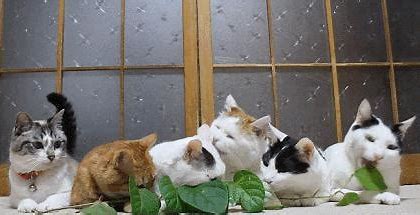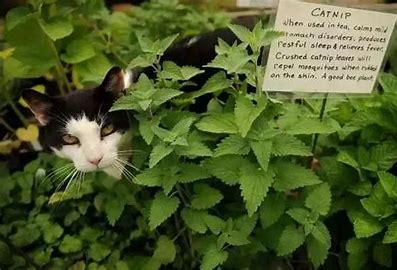Cats develop a euphoric response to catnip. So there are many people who wonder why cats love catnip so much.
The original name for catnip is known as camphor grass. It is an earthy thuja, and the flowers of catnip are lavender colored flowers. Cats are attracted to catnip once they smell it. And the reason that cats are attracted to it is because catnip has an ingredient called thujone lactone in it. When a cat smells the thujaplicin lactone, it triggers the amygdala in the brain, and once it is triggered, it causes the cat to feel euphoric. Tuttavia, cats are not big fans of fresh catnip, they prefer dry catnip.

But not all cats respond to catnip. Generally there are 50 to %70% of cats that get excited when they smell catnip, but there are also 30% of cats that don’t react to catnip in any way. In particular, if your cat hasn’t reached the age of two months, it will basically have no reaction to catnip either. It’s only after the cat reaches half a year old that the reaction slowly starts to become strong, and, in the case of female cats, it will be a little stronger than in the case of male cats.

In fact, catnip is a hallucinogenic plant that causes temporary (5-15 minutes) behavioral changes, such as sneezing, chewing, rubbing, rolling, meowing, and delirium. Some cats will chase imaginary mice after eating catnip, while others will sit and stare blankly. These behaviors are not harmful and catnip is not addictive. In short, catnip does not substantially help or harm a cat’s health.
When a cat smells catnip, it will seem more excited within 15 minutes, but, after 15 minutes, it returns to normal. And, if you don’t smell catnip to your cat for a long time, the cat won’t feel physically uncomfortable. Perciò, the pooper scooper should not have a kind of resistance to catnip, thinking that catnip is harmful to cats. On the contrary, a proper sniffing of catnip by cats will also make cats more youthful vigor and spirit.
 bere
bere